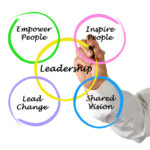
by
Frustration is a common emotion. It’s a close cousin to anger, because both deal with your reaction to an obstacle that is preventing you from achieving your goals. Where they differ is that anger is (usually) directed outward at an external obstacle. The energy and rage that anger generates may be useful for trying to influence that external obstacle physically.
Frustration is often directed at an internal or systemic obstacle that you can’t do much about. You may be frustrated because you don’t have the capability or time to do something, or may feel like some aspect of your company (or society) prevents you from accomplishing a goal.
But frustration is often unproductive, because it gets you energized around something you can’t really fix. You may actually think less clearly if you get too energized and that might make it harder to move forward. Here are a few things you can do to handle frustration effectively, especially when it comes up in the workplace:
Take a step back
Research going back almost 120 years shows that there is a sweet spot for the amount of mental energy you need to operate effectively. When you have a low level of energy, you don’t think effectively, because you’re simply not engaged with the situation. As you get more energized, you get more effective in your thinking up to a point. However, additional energy will actually create too much arousal. At that point, you have a hard time staying focused.
A little frustration can be helpful, because it may actually get you to pay attention to something that might otherwise escape your notice. However, when a situation creates more extreme frustration, you’re going to have trouble addressing it effectively.
You need to develop strategies to dissipate that energy. Ideally, you would take a little time to disengage from the situation. Some physical activity can help. Taking a brisk walk or doing a workout can leave you calmer afterward. Techniques for calming yourself can also be valuable. Deep breathing exercises, yoga, and mindfulness meditations are options. Some of these techniques (particularly deep breathing) are also helpful when you can’t completely disengage with the situation. (more…)






 The Executive Vice President Sales/Chief Growth Officer is responsible for cultivating a presence and expanding top line growth for our client delivering premium technology solutions. This includes identifying new markets to enter, creating strategies to achieve growth targets, and growing the firm’s presence and revenues across specific markets – including New Logo Sales, Account Acquisition and Organic Expansion. Leadership span of control is global and includes both top line and bottom-line revenue responsibilities.
The Executive Vice President Sales/Chief Growth Officer is responsible for cultivating a presence and expanding top line growth for our client delivering premium technology solutions. This includes identifying new markets to enter, creating strategies to achieve growth targets, and growing the firm’s presence and revenues across specific markets – including New Logo Sales, Account Acquisition and Organic Expansion. Leadership span of control is global and includes both top line and bottom-line revenue responsibilities.